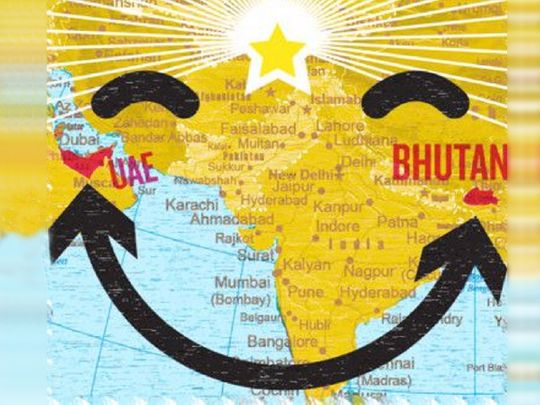
The start of a new year ushers in a sense of optimism and renewal. We make promises for a new beginning and a new “us,” exhibiting a readiness to leave the past behind with all its ups and downs.
But as the days of the new year turn into weeks, those feelings begin to wane. We become a bit sluggish, and soon it becomes clear to some of us that promises we made to ourselves are unachievable and merely wishful thinking.
But it doesn’t always have to be that way.
Indeed, for those who resolved to achieve health and wellness, the UAE now offer ample opportunities to fulfil their plans for renewal.
This became abundantly clear to me as Abu Dhabi hosted its first wellness event, the Livehealthy Festival 2020, in late January.
Over two days, the Festival offered free talks, workshops and workout classes. Unlike other wellness events, a significant part of its programme was dedicated to debates and conversations on nutrition, the mind, the body, the environment, mindfulness, the community and productivity.
There is no reason anyone in the UAE today should feel lost for the chance to become better centred and healthier.
Commitment to lifestyle changes
The festival hosted health specialists and thought leaders on wellness and its many dimensions.
It provided a space for these experts to meet the public, where questions were asked and ideas were exchanged, and where people were inspired to rethink their ways and start 2020 with an explicit commitment to lifestyle changes (yes, those resolutions we have difficulty sticking to, or, in fact, were unable to come up with — ones that are “Specific, Measurable, Achievable, Relevant and Time bound,” or SMART).
UAE’s growing wellness scene
The festival was a microcosm of a much larger, growing wellness community in the UAE.
It was an indicator of an emerging wellness scene. And with any initiative, the festival’s success was dependent on a community ready to receive it. And it was.
More embracing of nature
Anybody who grew up in the UAE or who has spent a considerable time here would have witnessed the development of an economy catering to the well-being of residents.
Cities have become more pedestrian friendly, more cycle-friendly, more mindful of the environment, and more sustainable in design.
Today, health centres offer everything from yoga and tai chi, to cross fit and circuit training. The food and beverage industry has moved towards organic and vegan dishes.
You now find aisles of organic food, with shelves carrying diary and sugar-alternatives.
They cater to increasingly health-conscious consumers who scrutinise the provenance of food and make educated decisions when purchasing.
The infrastructure as a whole has evolved to adopt an ethos of wellness, with people insisting on healthier options.
More importantly, there have been behavioural shifts.
More and more people of all age groups are actively doing something about their lives — addressing growing stress levels, mental health issues, anxiety and depression, and tackling obesity and diabetes.
‘Promoting principles of public health’
One vital member of the wellness ecosystem, and which is at the heart of policymaking and regulation, are the health authorities, and specifically those involved in the preventive aspect of public health.
The Abu Dhabi Public Health Centre (ADPHC), officially launched last May and a key partner of the festival, was established to do that very thing.
Its remit is to “preserve the health and guarantee the safety of everybody in Abu Dhabi, by promoting the principles of public and preventive health.” Its role is also one of data collection and analysis, and developing programmes and activities on wellness and preventive health care.
There was a clear need and an appetite for these different stakeholders to come together at the festival, and start the new year on what could be the most important issue — one that has a cascading effect on everything else in the economy. Without aspiring to a solid healthy society, productivity will fall.
Bhutan shows the way
This leads me to the Kingdom of Bhutan, which, according to the Gross National Happiness Index, is one of the happiest countries on Earth.
Dasho Karma Ura, an expert behind the Gross National Happiness Index and a trailblazer in promoting happiness as a national indicator, flew in to speak at the festival.
He talked about the importance of looking towards the dynamics of a village for lessons in community building, problem solving, cohesiveness and wellness.
Unlike a city or a large urban community, a village has agility due its lack of structure, allowing it to be fluid and to adapt to challenges quickly.
Creating happier communities
Those of us who live in cities are probably citizens of more than one “village” — our family at home, our extended family and friends in the neighbourhood, and with our colleagues at work.
Lessons can be drawn from Ura’s village and the mechanisms and means by which the individual is allowed to thrive.
These in turn can be applied to a city, a corporation and the household.
City planners and developers can adopt many of these values into policies and designs aimed at ensuring and creating happier thriving communities.
- Mohammed Al Otaiba is founder of the Livehealthy Festival. Twitter: @onlytweetshere










